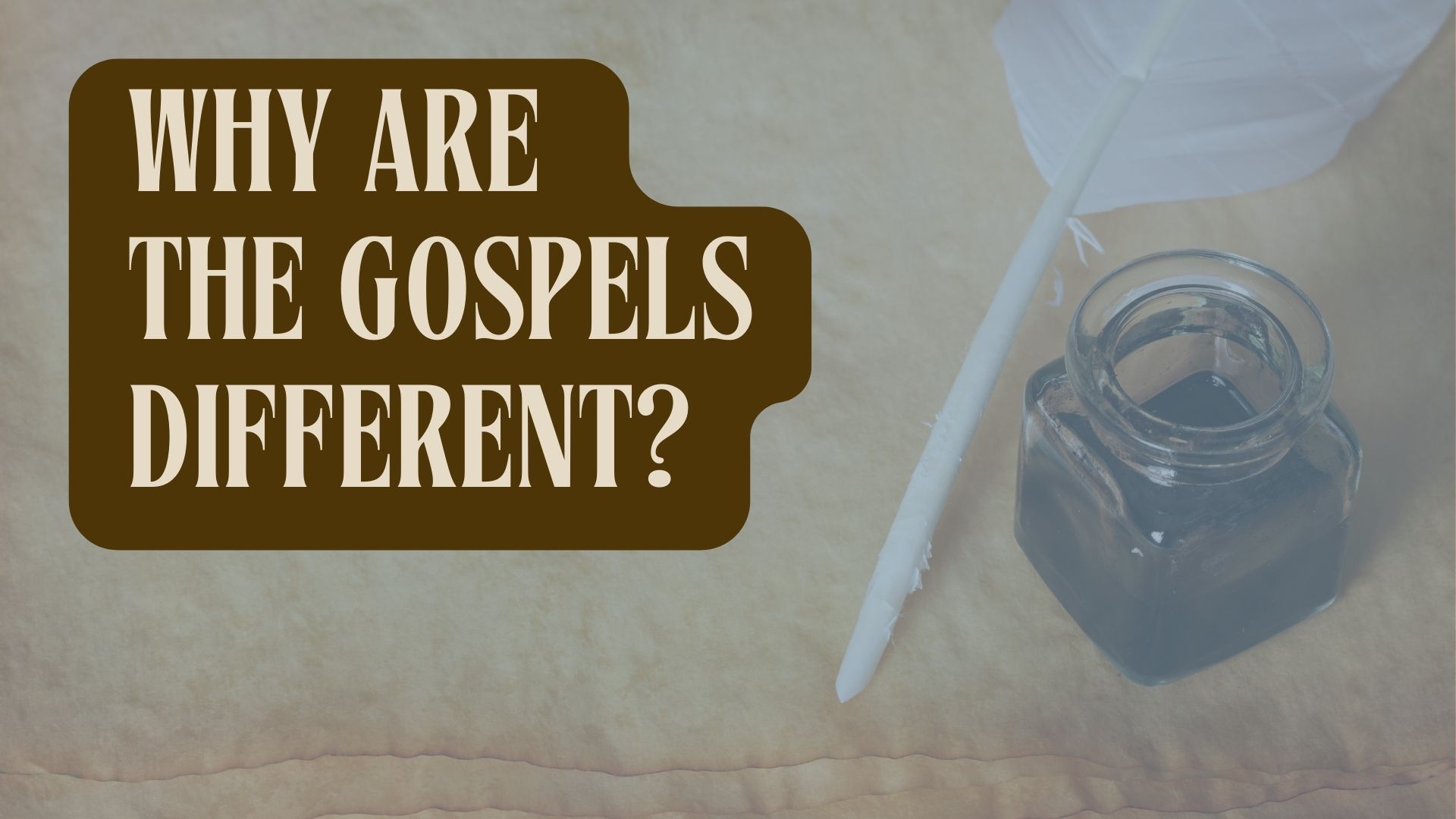If you’ve been a Christian for a while, or you’ve read the New Testament enough, you’ll likely notice some differences in the way the four Gospels record events in the life and ministry of Jesus.
Why is this? Why would these accounts not all be the same? Why do we see differences, including things that, at first glance, might seem like contradictions?
The first thing to keep in mind is that each of these accounts was written by a different individual. And each one had a distinct audience they were writing to.
It’s easy for us in 21st century America to view the Bible as a single book. Which in one sense is true–the Bible is one grand story, that we believe to be the Word of God.
But it’s also true that the Bible is a collection of 66 books, written by more than three dozen authors, over the course of some 1,400 years.
In this, it is unique among works of world literature. That the authors agree with, reference, and confirm one another; that the books contain specific prophecies, and record of their fulfillment; that their accounts have not been disproven but proven over the years, is nothing less than astonishing.
The Gospels are different because you have four different authors, writing from their unique viewpoints, to four different audiences.
An example is Matthew’s Gospel being written to a Jewish audience. This would naturally shape the details he chose to give. The genealogies at the beginning were more important to that audience than to the Gentiles.
While differences in the Gospel accounts may at first seem troublesome, they really should not be. Consider this.
If you have four people witness an accident, and each are questioned by police as to what they saw, each will give a slightly different account of what happened. Each individual will notice something different, or consider different things worth mentioning.
For example, consider this dialogue:
Person 1: I saw this sports car come barreling through a red light and hit the SUV, knocking it on its side.
Person 2: It was a red Porsche that nailed a blue Honda Pilot. Never seen such a hard collision up close!
Person 3: I saw a blue car going through the intersection, heard screeching tires, and then saw it get t-boned. Scary!
Person 4: I was watching the light change, when out of the corner of my eye I see this speeding object, and I immediately looked to see if anyone was in the intersection, cause I knew, whatever it was, wasn’t going to stop. I see this blue car, and I turned away, knowing what was coming. Next thing I hear? Crash!
Each person witnessed the same incident. Each one gave truthful testimony. But each one gave a slightly different account, even though it’s obvious they are describing the same thing.
You would look at this and not think twice about it. But, what if each of the four people all said,
“I saw a red Porsche 911 Carrera approach the intersection going about 45 miles per hour, disregard the traffic light, and collide with a blue Honda Pilot. The impact caused the Pilot to roll over on its side”?
If all four people said identically the same thing, you would likely be suspicious.
This is why we can have confidence the Gospel accounts having differences is not a bad thing. After all, if they were all identical, why would we need four of them?
And if they all said the same things, using the same exact phrasing, we would (rightly) suspect they were in league with each other to try and deceive their readers.
For things that seem to be contradictory, we can usually see on closer examination, these events really serve to compliment one another.
Don’t be troubled by accusations some would level–that differences in the Gospel accounts mean we cannot to trust them.
Be willing to dig in and examine the text, knowing this is not the first time these challenges have been brought. And still, the Bible stands the test of time.




